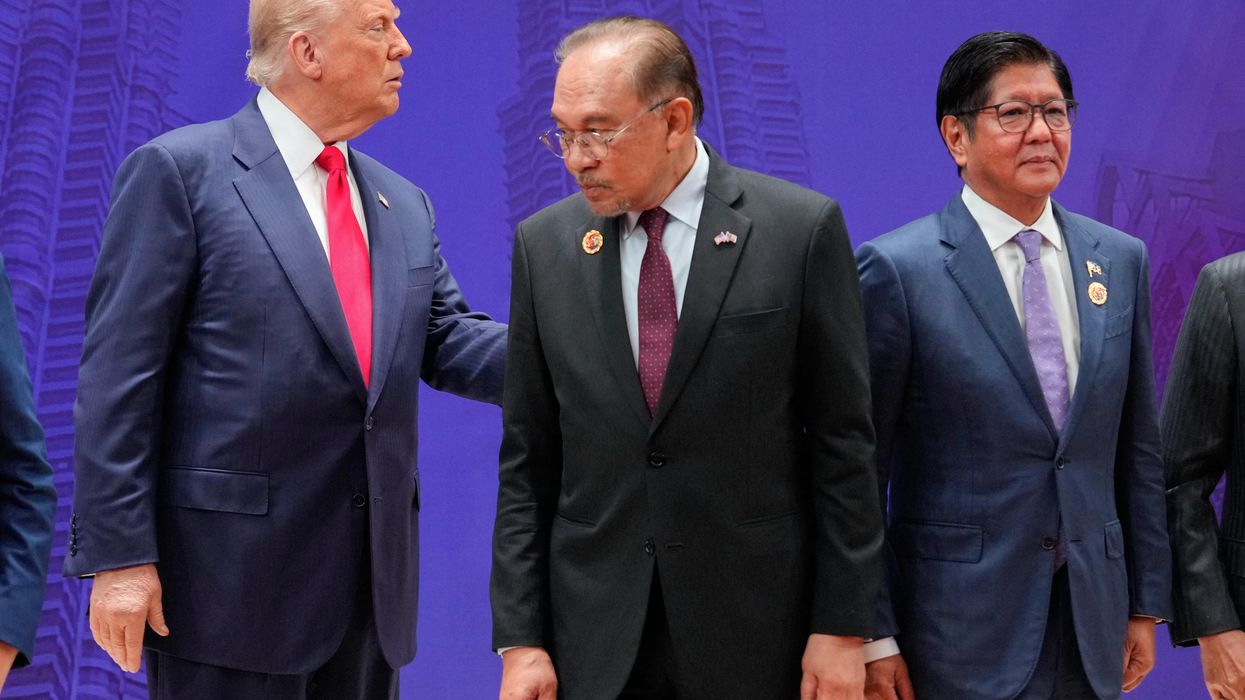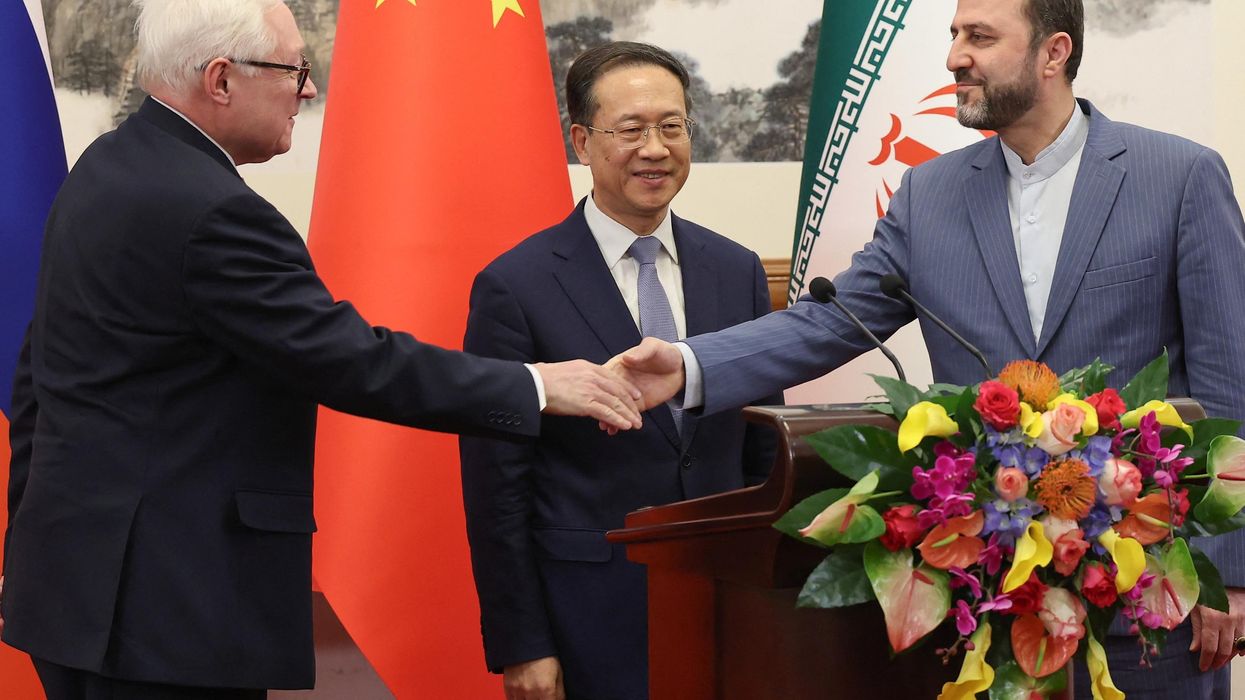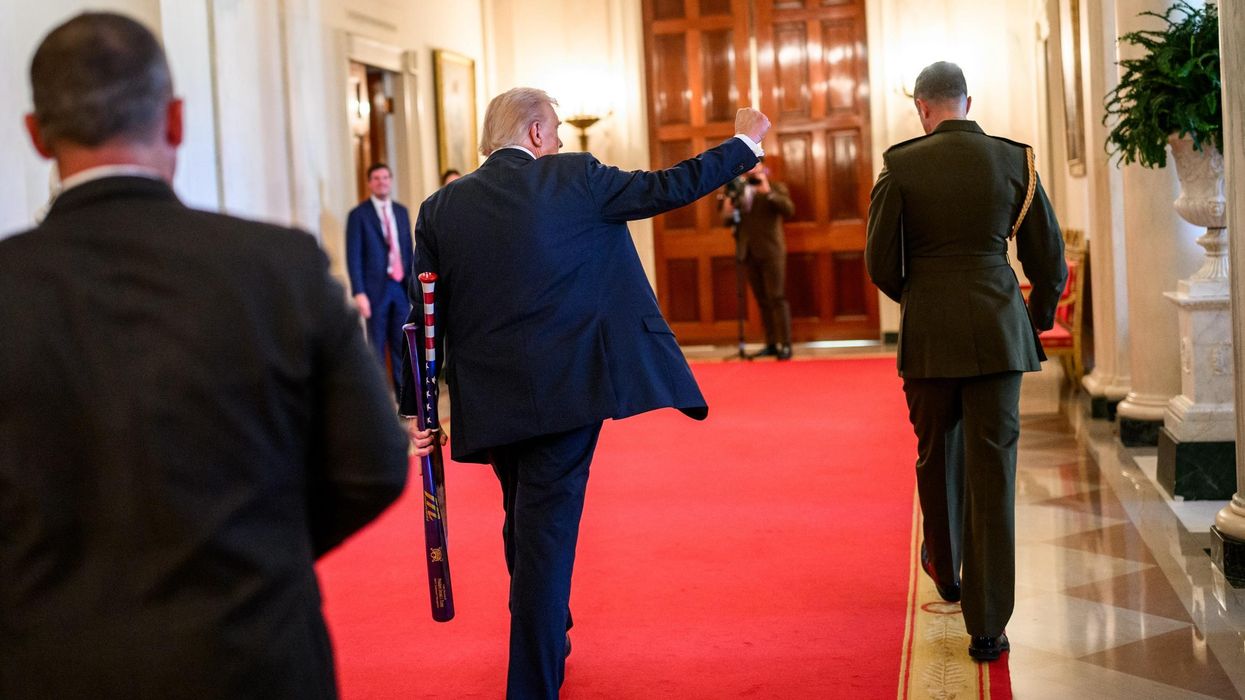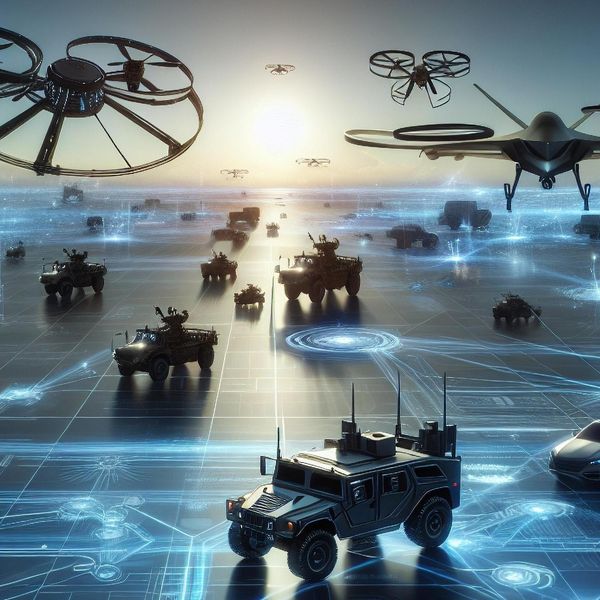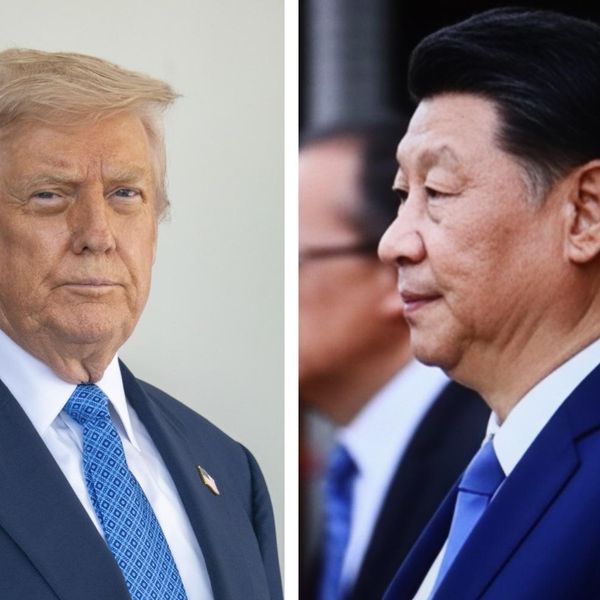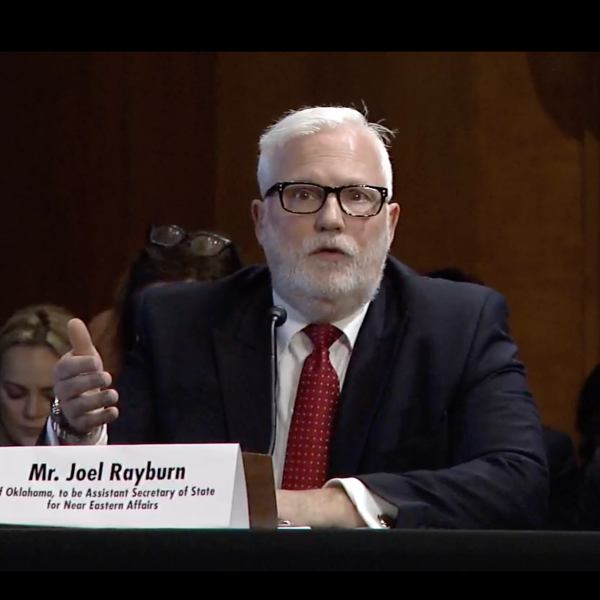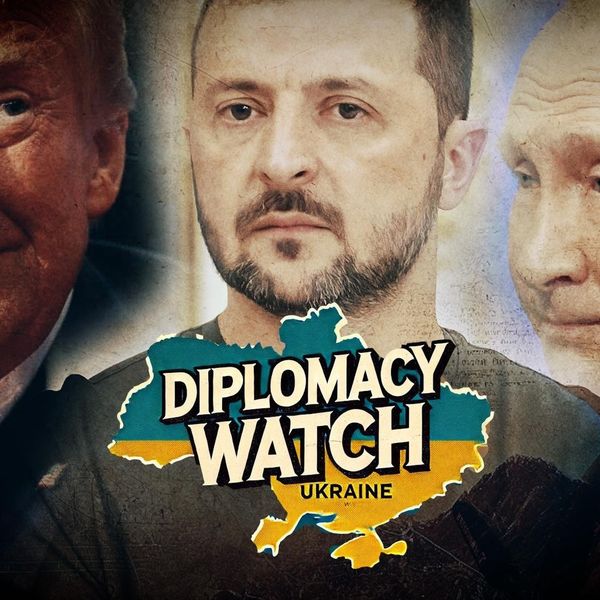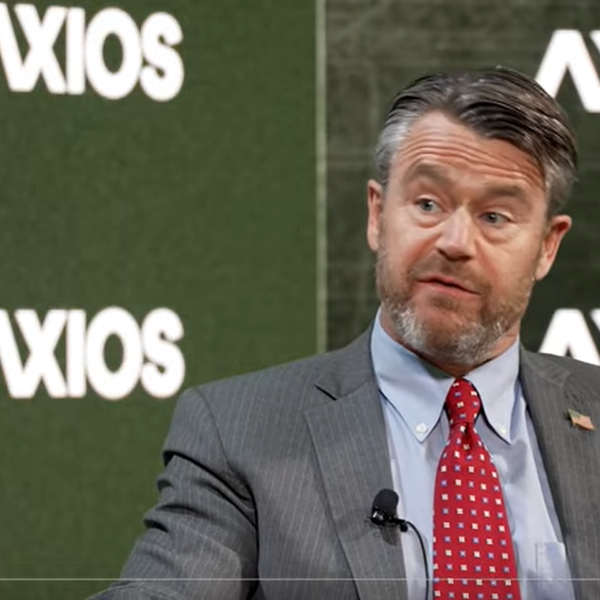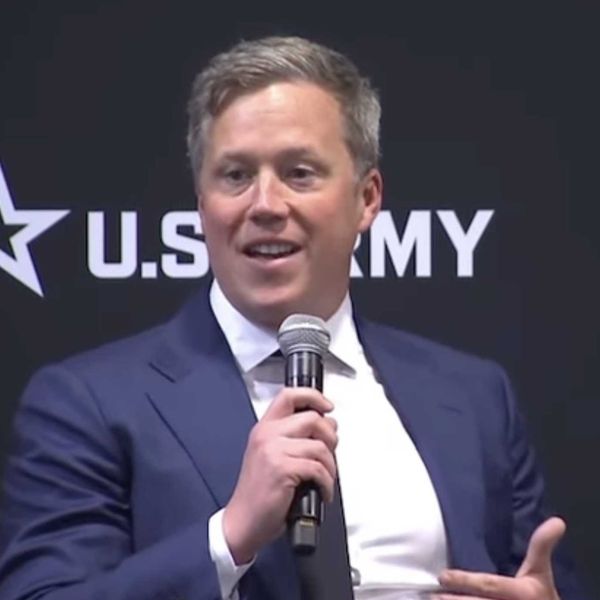The initial reaction of Biden administration officials to the latest clash between Ukrainian troops and pro-Russian militia (or Russian soldiers serving as militia) in eastern Ukraine exemplifies a very dangerous pattern in U.S. and Western behavior: to believe whatever “our” side in a given crisis tells us, automatically, and without checking facts.
How often in the past has the United States been seduced into disastrous international actions by local actors who knew the right American buttons to push and the right misinformation to feed to Washington? Iranian monarchists, British intelligence, the United Fruit Company, Vietnamese politicians; Cuban, Iraqi and Libyan exiles, Arab princelings, Afghan warlords, an almost endless succession of Latin American generals and oligarchs — I could go on.
While four Ukrainian soldiers died in the recent fighting, we have no independent evidence at all of who started it, or why, and more careful media outlets like the Financial Times have avoided apportioning blame in their reporting.
Nor, I am sorry to say, can corroboration by our intelligence services be taken as evidence, unless confirmed by independent sources. There have been too many instances of their building paranoid mountains out of evidential molehills when it comes to Russia, China, Iran and of course — most disastrously — Iraq.
The intelligence services' tendency to defer in their reporting and analysis to the U.S. administration of the day is bad enough. If — as in the case of hostility to Russia and support for the “new cold war” against China — both U.S. political party leaderships and the whole foreign and security establishment are of one mind, then it takes a very brave and self-sacrificing official to say anything that goes against the tide
This establishment rush to judgement in such cases was also demonstrated in the reaction to the bloody clash between Chinese and Indian troops in the Galwan Valley in a disputed region of the western Himalayas in June 2020. There are no independent witnesses to what started the clash, and which side was more to blame. All we have is conflicting “information” from India and China, none of which can be considered remotely trustworthy.
Yet talking with a friend at a Washington think tank after the incident, I was shocked to hear that “everybody here believes that the Chinese are the aggressors” — not just in this particular instance, but in the entire territorial dispute with India. Previously, Washington was careful not to take a position on the legal rights and wrongs of this issue. American analysts were also neutral or divided over the question of which country was most to blame for the outbreak of war in 1962. Nothing has changed in terms of evidence or fact. What has changed is simply that China has ceased to be seen as a partner and is perceived as an enemy.
An even starker example can be found in the U.S. and Western response to the outbreak of the Georgia-Russia war in August 2008; for here, the evidence, far from being ambiguous and opaque, was always entirely clear. The war began with Georgian troops moving inside the disputed territory of South Ossetia and attacking Russian “peacekeeping” troops there. Nobody has ever produced the slightest credible evidence otherwise. Russia then counter-attacked and defeated the Georgian forces. Yet this obvious truth was turned by the Bush administration, the entire bipartisan establishment, and the U.S. media into a story of “Russian aggression against Georgia.”
To say this does not mean taking one side or the other on the underlying rights and wrongs of any of these conflicts. What it does mean is maintaining a respect for evidence and the truth in each specific case, without which it would be impossible to maintain either the integrity or the wisdom of the policymaking process and foreign policy debate: Garbage in, garbage out.
The Georgia-Russia war also demonstrates another sinister effect of this syndrome, which is to reduce the ability of the United States to learn from its mistakes — something that used to be to be considered a key advantage of liberal democracy over its closed and authoritarian rivals. The bipartisan establishment and media had agreed on pushing NATO membership for Georgia and Ukraine, and encouraged the Georgians to see themselves as allies for whom the United States would fight to defend in a war with Russia. They did this despite warnings from certain regional experts (including me), both of the risks they were encouraging Georgia to run, and of the obvious truth that America would not risk nuclear war with Russia for the sake of Georgia.
Not surprisingly, given the reckless character of the then-Georgian president Mikhel Saakashvili, U.S. support for NATO membership and declarations of partnership were taken in Tbilisi as a green light to reconquer South Ossetia. American politicians, officials and diplomats could not and would not admit the utterly irresponsible role they had played in encouraging the Georgians to make this terrible mistake. So they could not acknowledge and learn from the lesson that the resulting war, Georgia’s defeat, and Washington’s humiliation should have taught them.
It is essential that the Biden administration learn this lesson before plunging further into encouragement for Ukraine. For when they could no longer maintain the lie that Russia attacked Georgia in August 2008, the defenders of America’s misguided policy towards Georgia shifted to saying that, well, yes, Georgia may have attacked Russia, but that was because Russia deliberately provoked Georgia into this so as to start a war which Russia would win.
Leaving aside the deep dishonesty of this kind of rhetorical sleight of hand, the answer to this claim should be obvious, and it should be the advice that the Biden administration gives to Ukraine today. If the latest clash in the Donbas was in fact started by Moscow in a deliberate attempt to provoke Ukraine into starting a wider conflict to serve Russia’s interests , then it is obviously the responsibility of the Ukrainian government not to allow itself to be provoked.
To repeat the vital point that I made in an article for Responsible Statecraft last month, if Ukraine goes to war with Russia, Ukraine will lose, and the United States and NATO will not fight to save her. The consequences for Washington will be deep humiliation, and Russia will be driven into the arms of China. So the duty of the Biden administration, the CIA, the State Department and the media is clear: find out what is really happening in the Donbas and then use that knowledge to help craft a strategy for preventing a new conflict, not inflaming one.

